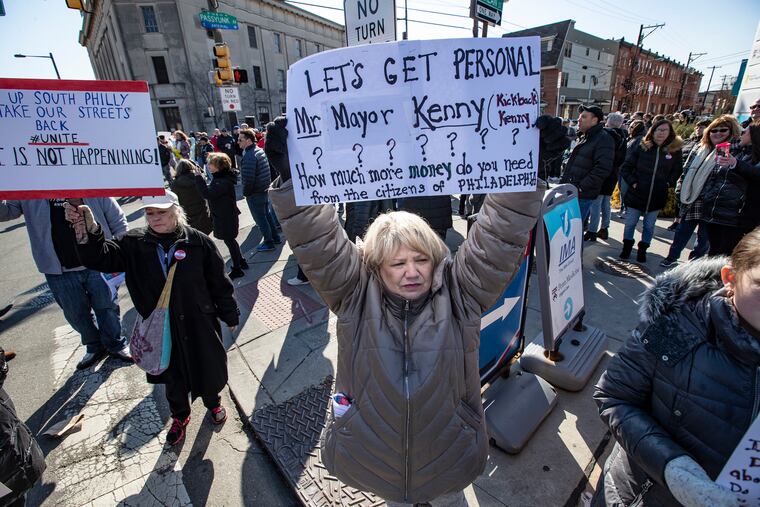After botched supervised injection site rollout, there’s a path forward | Opinion
Philadelphia needs leaders willing to have hard conversations about overdose prevention, not another punitive drug law that will hurt people of color.

Over the past week, Philadelphia took a major step toward opening a supervised injection site, followed by what feels like infinite steps backward.
Instead of asking for either approval or forgiveness, last Wednesday, Safehouse, the nonprofit working to open a site, bizarrely asked for both — announcing that a site will open within a week in South Philadelphia, not allowing enough time for meaningful input from the community while leaving just enough for opponents to shut them down. Within 48 hours, Safehouse’s landlord canceled their lease and the nonprofit paused their plans. On Sunday, hundreds in South Philly celebrated the site’s suspension.
Before the plan was halted, proponents of supervised injection sites both applauded the development and criticized the lack of community input.
In response to the fiasco, State Sen. Anthony Hardy Williams (D., Phila.) and other officials held a press conference in City Hall Monday morning. Williams discussed legislation he introduced in October to require a local ordinance for any supervised injection site in Pennsylvania. The bill requires “at least three public input community meetings,” that drug use be done under “observation by appropriate medical professionals,” and a “proactive and comprehensive community safety plan.” What counts as a “public input hearing,” who qualifies as a “medical professional,” and what makes a plan “comprehensive” is not defined.
Once these conditions are somehow met — it’s unclear who evaluates that — the legislation requires a local ordinance to approve a site. For one to open in Philadelphia, City Council would need to sign off.
At face value, the requirement is reasonable. It is hard to argue against community input.
But if Williams’ bill goes into law, the penalty for violating it would be up to 20 years in prison — the same as the federal Crack House Statute. When asked about the penalty, Williams responded: “Was crack 20 years?” He said the penalty is extreme, but that people who advocate for harm reduction measures like supervised injection sites now have to recognize the impact of past drug policy on black communities.
» READ MORE: Overdose prevention sites are a tool for racial justice | Opinion
Williams is absolutely correct that the current crisis is getting attention because of the number of white people who are dying, and that any true harm reduction movement must address the harms inflicted by the War on Drugs. The irony is that Williams’ bill is exactly the kind of legislation that codified the racist War on Drugs.
If there is one constant in American drug policy, it’s that when blunt tools are available for prosecutors, they use them against black and brown people. Williams’ intent might be going after Safehouse, but nothing in the bill’s language would prevent Pennsylvania’s district attorneys from using it to, for example, lock up black people who had anyone smoking marijuana in their house regularly, arguing that they operated an “establishment” that provides “space for any person to inject, inject, inhale, or otherwise introduce into the person’s body a controlled substance.”
In addition to Williams’ bill, State Sen. Christine “Tina” Tartaglione (D., Phila.) announced plans to introduce legislation to prohibit supervised injection sites. Others’ critiques of the process rang hollow. Philadelphia City Councilmember Kenyatta Johnson said that “there has to be a transparent process,” yet also that there will be “no safe injection site in the 2nd Councilmanic District.” The forgone conclusion that sites must be prohibited, or that they will not open in a certain district, revealed that the presser’s theme of a fair process wasn’t shared by everyone in good faith.
Given Johnson’s comments and the tradition of councilmanic prerogative that would allow individual councilmembers to be the sole decision-makers on issues impacting their district, it’s a safe bet that regardless of the botched process, Safehouse never stood a chance in South Philly.
» READ MORE: Supervised injection site news blindsided South Philly neighbors, even those who support Safehouse | Opinion
» READ MORE: South Philly supervised injection site will keep the neighborhood safe | Opinion
What’s next? It’s time for Mayor Jim Kenney to take over and show real leadership.
Unlike the city, Safehouse doesn’t have police, public health, or streets departments to answer many of the questions it faces, like how public safety and street cleaning would be handled. Simply releasing a two-page public safety plan is not enough. Safehouse also doesn’t have property to accommodate a site. It would be a powerful statement from Mayor Kenney if the first site opened in City Hall, one of the municipal buildings around it, or one of the city’s community health centers — Kenney’s own backyard.
Two core tenets of harm reduction are “meeting people where they are” and “nothing about us without us.” That should be as true when approaching a community uneasy about supervised injection sites as when approaching a person in addiction. Community buy-in is hard work that takes patience amid an urgent problem. But that work needs to be done.
The strategy moving forward has to meet Philadelphians where they are. It also requires elected officials to be invested in drug policy and overdose prevention not just when they oppose supervised injection sites.